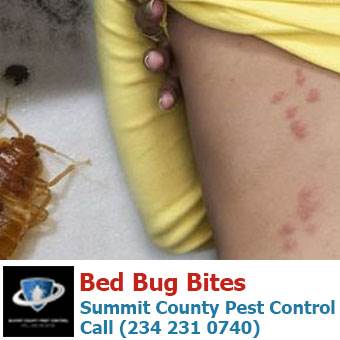A1 Bed Bug Exterminator Houston: Dependable Treatment Providers
Wiki Article
Recognizing the Lifecycle of Insects for Targeted Control Methods
Understanding the lifecycle of insects is an essential aspect of efficient insect management strategies. Through a much deeper understanding of just how insects flourish and advance, tailored control strategies can be made to resolve specific points in their lifecycle, eventually leading to more effective parasite administration outcomes.Value of Recognizing Bug Lifecycle
Understanding the lifecycle of bugs is crucial for creating effective and targeted control approaches in pest management. By comprehending the numerous phases an insect undergoes from egg to grownup, pest control experts can determine weak spots in the lifecycle where treatment can be most successful. Understanding when larvae are most active can assist identify the optimal timing for applying larvicides. In addition, recognizing the life expectancy of a pest types can help in forecasting population growth patterns and potential problem dangers.In addition, recognizing the particular environmental problems required for each and every stage of the bug's lifecycle can direct decisions on habitat alteration or exemption methods to minimize and disrupt the lifecycle parasite populaces. This expertise enables pest monitoring specialists to carry out proactive procedures as opposed to relying exclusively on reactive treatments, bring about even more long-lasting and lasting insect control solutions. Ultimately, an extensive understanding of bug lifecycles equips bug control professionals to customize their strategies successfully, minimizing environmental impacts and optimizing control results.
Secret Stages in Parasite Development
To successfully apply targeted control techniques in parasite management, a vital facet lies in thoroughly determining and understanding the essential stages in insect advancement. Bug growth typically is composed of several vital stages that are critical for their lifecycle and management.

Susceptabilities in Bug Lifecycle
Throughout the numerous stages of an insect's lifecycle, distinctive susceptabilities arise that can be strategically targeted for efficient control actions (A1 Bed bug Exterminator houston). One important vulnerability exists in the egg stage, where parasites are often more susceptible to specific insecticides or organic control agents due to their soft external shell, making them easier targets for treatment. Understanding these vulnerabilities in the pest lifecycle is necessary for developing accurate and reliable control strategies that properly take care of bug populations while reducing ecological impact.Implementing Targeted Control Actions

Executing targeted control steps commonly entails a multi-faceted approach. This may include environment modification to make the atmosphere much less hospitable to parasites, such as getting rid of standing water for mosquito control or securing entry factors for rats. In addition, organic control methods can be utilized, where all-natural killers or virus are presented to maintain bug populations in check.
Integrated Insect Monitoring (IPM) methods that combine numerous control procedures in a collaborated and lasting fashion are frequently the most reliable in achieving long-term insect management goals. By applying targeted control steps based on a detailed understanding of pest lifecycles, parasite populations can be successfully controlled while decreasing risks to human health and the atmosphere.
Improved Insect Management Practices

In addition, the unification of organic control representatives, such as all-natural killers or pathogens of insects, can help in reducing reliance click to read on chemical pesticides and advertise a more balanced environment. Executing physical obstacles and traps can also belong to enhanced insect administration methods, providing safe and targeted options for parasite control. go to the website Furthermore, using scents and other semiochemicals can interrupt pest mating patterns and communication, resulting in minimized bug populations over time.
Conclusion
To conclude, recognizing the lifecycle of pests is essential for efficient parasite monitoring approaches. By identifying vital stages in bug development and susceptabilities in their lifecycle, targeted control steps can be applied to minimize insect populaces. Improved pest monitoring techniques can aid reduce the dependence on broad-spectrum chemicals and advertise more environmentally friendly and sustainable insect control methods. This knowledge plays a crucial role in preserving healthy communities and farming efficiency.Understanding the lifecycle of parasites is vital for developing effective and targeted control approaches in bug administration. By comprehending the various stages a pest goes with from egg to grownup, insect control professionals can determine prone points in the lifecycle where intervention can be most effective. Eventually, a comprehensive understanding of bug lifecycles encourages parasite control professionals to tailor their strategies properly, taking full advantage of and reducing environmental influences control outcomes.
By executing targeted control measures based on a thorough understanding of parasite lifecycles, pest populaces can be properly regulated while minimizing dangers to human health and the environment.
By identifying essential phases in insect growth and vulnerabilities in their lifecycle, targeted control measures can be carried out to reduce insect populations.
Report this wiki page